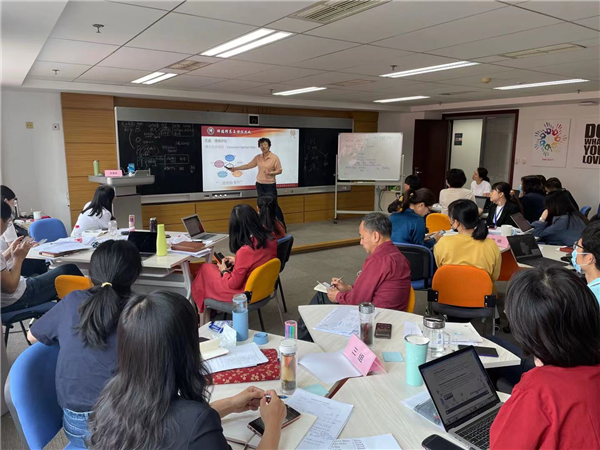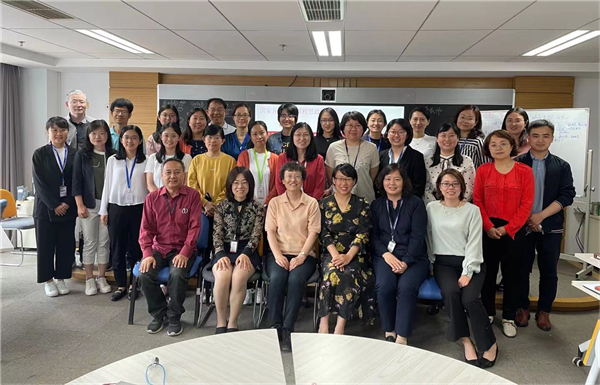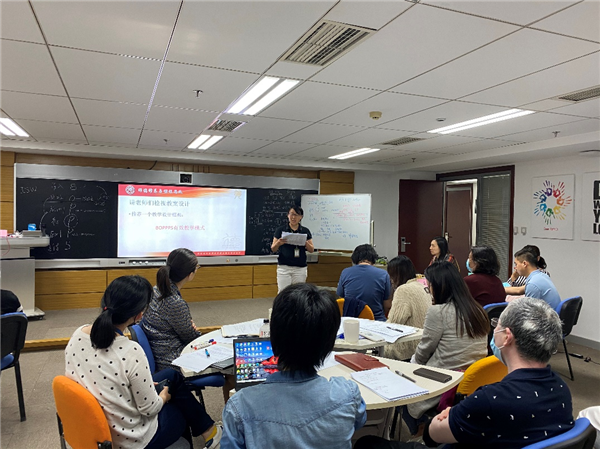 Recently, the Department of Student Affairs and Teacher Development of the Open University of China (OUC) held a two-day training session at the OUC headquarters on the teaching of ideology and politics.
Recently, the Department of Student Affairs and Teacher Development of the Open University of China (OUC) held a two-day training session at the OUC headquarters on the teaching of ideology and politics.
The event aimed to implement the ideas put forward by General Secretary Xi Jinping and the National Education Conference, as well as the guidance of the "Plan for Ideological and Political Construction in Institutions of Higher Learning" of the Ministry of Education (MOE). It also aimed to integrate ideological and political education into personnel training, promote its construction at the OUC, ensure that each course would meet expectations, and enhance personnel training overall. The session was conducted via lecture, with Li Saiqiang, a famous expert in ideological and political education, giving lectures to 30 teachers.

Professor Li based her lectures on two themes: the nature of ideological and political education, and the problems designing it. These immediately aroused the interest of the trainees. She approached the themes in terms of four aspects: course objectives, teaching activities, multi-faceted evaluation, and reflections. She also explained the significance of teaching ideology and politics, common problems with it, and how ideological and political education should be constructed. Other contents included design of teaching objectives and activities, access to resources, online teaching, evaluation, the awareness and ability of teachers, and so on.

During the classes, Professor Li introduced the lectures by posing problems, and then led group discussions. She also took questions about the construction of ideological and political education, and adjusted her training accordingly. Using many real-world examples, both positive and negative, she gave in-depth analysis of the significance, elements, design principles, teaching strategies, and evaluation of ideological and political education through participatory and group learning. At the same time, she introduced cutting-edge educational concepts and teaching methods such as "3H", "3S" and "CAI", while answering teacher questions.

After the session, Professor Li and the trainees discussed in-depth how to integrate ideological and political education into humanities courses, how a course leader should communicate with its chief lecturer in terms of such education, and how to conduct evaluation as a team. The participants said that they had learned a lot, not only in terms of the concept and significance of ideological and political education, but also of constructive strategies and methods. They thought the training would have practical value, and were determined to put it to use in their teaching.
By Yu Jing, OUC